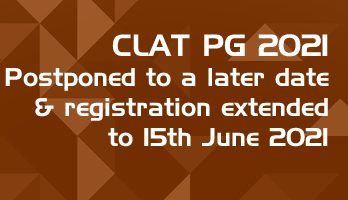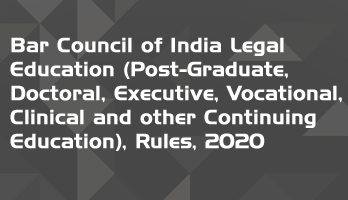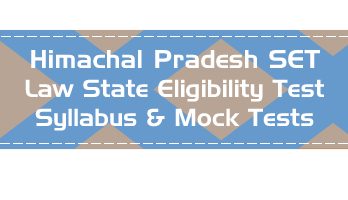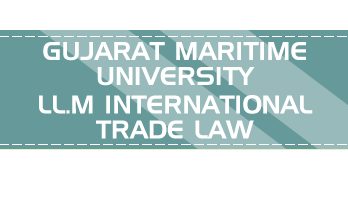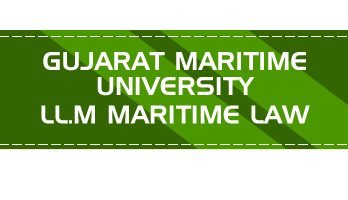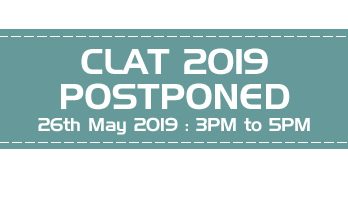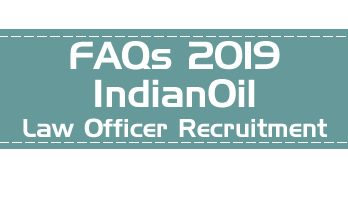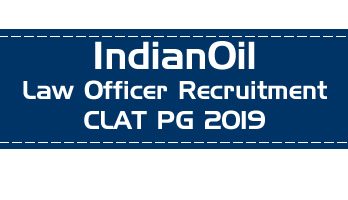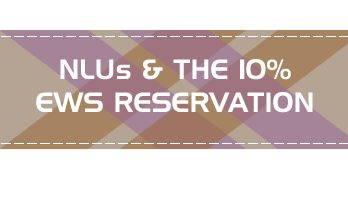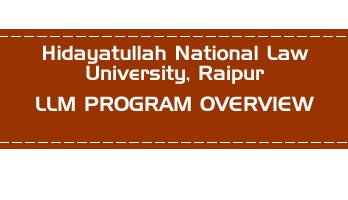Q : Can a 1st year post graduation student is eligible to apply for UGC NET JRF which is going to be held in December ?
Ans :
Sure, you can.
As far the official rules are concerned :
(ii) Candidates who are pursuing their Master’s degree or equivalent course or candidates who have appeared for their qualifying Master’s degree (final year) examination and whose result is still awaited or candidates whose qualifying examinations have been delayed may also apply for this test.
However, such candidates will be admitted provisionally and shall be considered eligible for award of JRF/eligibility for Assistant Professor only after they have passed their Master’s Degree OR equivalent examination with at least 55% marks (50% marks in case of OBC falling in Non Creamy layer/SC/ ST/PwD category candidates). Such candidates must complete their Masters degree or equivalent examination within two years from the date of NET result with required percentage of marks, failing which they shall be treated as disqualified.
With only 6% of the eligible candidates declared as NET qualified, not all the candidates will be able to clear it in one attempt. Taking the NET as soon as possible, is a good way to get some bandwidth for extra attempts if required.
If you clear NET even when you are in your PG; as long as you can complete your degree it within the specified time limit, it will allow you to pursue a career or research immediately. Else, consider the first attempt as a trail run and you can clear it in your subsequent attempts.
Bottomline : I don’t see any downside to taking up the NET as early as possible.
Q : What are the subjects in which an MCom student can take the UGC NET exam with no specialisation in an MCom or a BCom?
Ans :
Choose wisely, choose well 🙂
In general, the norm for the UGC NET exam is that you should take up the subject in which you have completed your Post Graduation (PG / Masters).
Since most of the normal Post Graduation areas like Commerce, Management, Economics etc. are already on the list, the selection should be easy.
But every once in a while there will be cases where people have double PG / Masters; or their PG degree is not specifically in the UGC NET list or they have specialized in multiple areas.
In such cases, the candidates will have an option to choose from among the relevant subject areas.
If you have an option of choosing, you can either use personal preference, career preference or financial preference as the criteria.
For example, if you are personally interested is a specific area – choose that. If pursuing a career is your reason for taking up NET, choose that area which has the most number of openings or the field which pays better.
Your choice should be relevant & should connect with your prior qualification and experience. For example, if I am eligible to take the NET in HRM / Management / Economics / Commerce / Law, I should choose that one which is in sync with a majority of my prior experience & qualification.
If I don’t have relevant experience and specialization in economics, even if I clear the NET in economics, I will not be able to capitalize much on the qualification.
Q : What are the academic opportunities for a 45-year-old male to pursue Law in India? Are there any age restrictions to appear for the law entrance exams for admission?
Ans :
As of today 10th Sep , there is no upper age limit on taking up any LLB course in India. (3 year or 5 year).
I know of people who have taken up studying law well into their 40’s & 50’s.
One curious case of somebody becoming a lawyer at a senior age is the late Harshad Mehta’s brother, who became a lawyer in his 50’s since he was anyways dealing with so many legal issues, he decided to become a lawyer himself.
People take up law later in life for various reasons – out of interest, to start a private practice, as a post retirement career option, for pursuing corporate careers etc.
Rest of the answer is reused from one of my previous posts.
In India, there are three ways to taking up an LLB course . . .
[1] Without any entrance exam (3 year / 5 year) – There are many tier-3 and some tier-2 Law Colleges across India, where admission is done on a first-come-first-admitted basis.
No entrance exam. Just meet the minimum criteria in terms of your previous academics and pay the fees.
These are proper colleges, recognized by the Bar Council and have 3 year & 5 year LLB courses, affiliated to various Universities.
They normally will not have any placement process and the other facilities also are quite basic.
But, you will get a proper LLB degree after completing the course.
[2] With entrance exam (3 year / 5 year) – there are tier 2 colleges that have their own entrance exam and in some states there is a common entrance exam for Law Courses across many participating colleges – tier 2 & 3.
For example, the Andhra Pradesh – AP LAWCET, Telangana – TS LAWCET, Kerala CEE , DU Law entrance exam etc.
Bulk of the seats are filled through the exams, but there will usually be a ‘Management quota’ of seats with higher fees in private colleges that participate in these common entrance process.
[3] Through CLAT (5 year only) – CLAT is the common entrance exam for the National Law Schools / National Law Universities across India.
These tier 1 institutes have placement process, superb facilities and the competition for getting admission is also quite tough.
Note 1 : NLU Delhi and HPNLU Shimla do not participate in the CLAT as they have their own separate entrance exams.
Note 2 : There are also other private colleges which use the CLAT scores for their own admissions.
So, to answer your question . . . you can definitely do your LLB without CLAT or any other entrance; as long as you meet the minimum criteria.
Q : What is the best site to prepare for the UGC NET through taking a mock test?
Ans :
Thanks for the A2A. IMHO :
- Any site which offers as many Mock tests as you can practice.
- Any site which has a good question bank of ‘relevant’ questions.
- Any website that does not have any limits on how many times you can practice.
- Any website which is accessible 24×7 via desktop / laptop / mobile phone – to allow users to practice anywhere – anytime.
When we were building the LawMint online prep system, we initially started off by building a database of questions for each area from the syllabus and we quickly had a huge question bank – and then we stepped back and realized that it was the wrong approach and we re-engineered our entire model.
For example, the Indian Constitution has 448 Articles. So, even two questions per article can generate almost a 1000 questions. However, are they relevant questions ? To be useful, a question bank should have relevant, important & likely questions.
So, we analysed all the previous question papers from circa 2004 and we also looked at questions from other exams etc. – we saw that almost 85% of the questions are around some 50 odd Articles. When we add the relatively less popular articles, we end up with a list of around 75. (There are always some outliers to everything.)
So, wouldn’t it be better to have a question bank around these 75 articles and their variations ? That way, we are enabling more focused prep.
We did a similar exercise for UGC NET Paper 1, UGC NET Law Paper 2 and we will be releasing a pack for UGC NET Commerce in the next few days.
What we include as standard in every online prep pack are :
- As many previous question papers as possible. (UGC NET Paper 1 – we have prev papers from 2004 onwards)
- As many mock tests as possible – we have 50 full length mock tests & 50 mini mock tests for quick practice.
- Our system creates the mock tests on the fly – shuffling the questions and even the answer choices with every attempt. So users are forced to remember the actual answers, not the position ‘A’ ‘B’ ‘C’ etc.
- We also encourage users to practice as much as possible – with no limits on timing / attempts etc.
We never solicited feedback from our users – and all the feedback comments that you see on our website is absolutely voluntarily sent by our happy users and 100% authentic.
With the launch of the UGC NET Paper 1 packs and the upcoming new offerings, we have also upgraded our systems and our entire testing engine is now on Google Cloud Platform so that there is no slowdown or delay – even when there is a spike of concurrent users as the exam gets closer.
Do try out some free demo mock tests (Link under the signature) and see if it meets your expectations.
Q : How do I score 50 out of 50 in the UGC NET paper 1 in the upcoming December exam?
Ans :
TLDR summary : Given enough time, a number of students will score 100% in the UGC NET Paper 1.
But when you are running against the clock; and you have to choose between really close answer choices, the probability of getting some answers wrong is higher. – Which is why practicing as many mock tests as possible, in timed – exam conditions is very important.
Now, the long answer :
Scoring 100% is not impossible, but let’s do a reality check . . .
On our online test prep site, we have a number of candidates who have enrolled for the UGC NET Paper 1 online prep. Apart from 100 mock tests, the pack has all the previous paper 1’s from Dec 2004 till July . (See link in signature)
I quickly checked to see the performance of the candidates in various previous papers; and while a number of candidates eventually score 100% after practice, nobody has done so in their first attempt of any previous paper.
Is it impossible to score 100% in the UGC NET Paper 1 in the first attempt ?
It is not impossible, but it is quite difficult. Let me explain.
In paper 1, there are four broad categories of questions.
[1] Questions with only one obviously correct answer – many students get them right the first time around.
[2] Questions with only one correct answer, but the answer choices are very close – for example, mathematical or quant questions where the answer choices differ by decimal points (e.g. A: 30.1, B: 30.3, C: 30:2, D:30.4).
Since these questions require good calculation skills & candidates are running against the clock, a number of students get these questions wrong in their first attempt.
[3] Questions where there are more than one correct answers but, you have to choose the ‘best’ or the ‘most correct’ from the choices.
Here, practicing previous question papers and understanding the rationale behind the correct answers is important. (which is why we have a video series in our prep pack that explain previous papers in detail.)
[4] Googly questions – These are questions where you have to precisely think on the same lines as the person setting the questions; and there are at least 2 or 3 such questions every year. Here again, practicing as many relevant mock tests as possible is very important.
Getting this category of questions correct requires skill + practice + a bit of luck.
So, with decent aptitude & enough practice , you can score in the mid & even high 90%s, but 100% is a tricky task.
Do check out a sample explanation video from our online prep pack; and you can register for a free demo on our site.
Q : As the NET exam is in December, how should I start now? Is it possible?
Ans :
Yes. Now is the best time to start :
There are some candidates who prepare for 6 ~ 8 months ahead of the exam. But a bulk of the candidates start their preparations at the time when the official notification is out.
I always find it easier to focus on the preparation for any exam when I am running against a deadline. If I have too much time, I tend to slack off. So two ~ three months is the ideal time for focused prep.
Re-using my answer from another similar question . . .
Two ~ three months of focused & dedicated preparation is more than enough to crack the NET exam.
With a decent amount of effort and some smart preparation, it is possible to crack the NET in the first attempt – and a number of candidates do that every time.
The NET is not a difficult exam to start with. The challenge is that you have to make it to the top 6% to get qualified.
A number of students delve into extensive theory to prepare for the NET – which is not something I recommend. Because the theory is something you have already studied in your graduation & PG. Do you really want to dig up all the old text books and study again ?
Instead, focus on solving as many papers and mock tests as possible; which will help you focus on the crucial areas and understand your weaknesses.
( Which is why we have 100 mock tests & all previous paper 1’s from Dec 2004 in our online prep pack. )
Also, the approach is to know or guess the correct answers within the limited time available. So practice, practice and practice.
For example, Managerial Economics is a vast topic and so is Economics. However, when the entire exam is for 100 questions; across the entire set of Management subjects, most of the questions will be predictable.
Extensive theory books are not required . . .
Since the UGC NET is a completely objective exam, studying extensive theory is not an ideal prep strategy.
The books covering the full syllabus are nothing but your graduation text books.
Selective & focused study is the best approach for the NET.
UGC NET Paper II, it is mostly a memory game. The entire syllabus of a subject is sought to be compressed and tested within 100 questions.
You just need to remember the right answer – even if you don’t know the detailed theory behind it.
For Paper 1, apart from memory based questions, you need to know the processes of how to calculate, select or guesstimate the right answers.
For both papers, it is all about practice, practice and more practice; since a most of the questions are repeated, adapted or derived from a standard pool of questions.
What I would suggest for both Paper 1 and 2 is :
[1] Solve at least 5 previous papers even before you start your prep.
( Check out our online prep pack with 100 mock tests & all previous paper 1’s from Dec 2004. Link in the signature )
[2] Review the papers you have attempted and you will identify your strengths and weaknesses. For example, in paper 1 you may be very good at data interpretation, but need to improve your reading comprehension etc.
[3] Watch good explanation videos of previous question papers which explain how to solve the different types of problems.
[4] Start your second round of practice and again attempt as many previous papers + mock tests as possible.
[5] Review each paper thoroughly before attempting the next paper
Within 15 ~ 20 days, you will see a significant improvement in your scores. Keep practicing till you consistently score above 85% and you are ready to crack the NET exam.
Q : When should I start preparing for NET?
Ans :
Start Now !
Re-using my answer from another similar question . . .
Two ~ three months of focused & dedicated preparation is more than enough to crack the NET exam.
With a decent amount of effort and some smart preparation, it is possible to crack the NET in the first attempt – and a number of candidates do that every time.
The NET is not a difficult exam to start with. The challenge is that you have to make it to the top 6% to get qualified.
A number of students delve into extensive theory to prepare for the NET – which is not something I recommend. Because the theory is something you have already studied in your graduation & PG. Do you really want to dig up all the old text books and study again ?
Instead, focus on solving as many papers and mock tests as possible; which will help you focus on the crucial areas and understand your weaknesses.
( Which is why we have 100 mock tests & all previous paper 1’s from Dec 2004 in our online prep pack. See link in signature.)
Also, the approach is to know or guess the correct answers within the limited time available. So practice, practice and practice.
For example, Managerial Economics is a vast topic and so is Economics. However, when the entire exam is for 100 questions; across the entire set of Management subjects, most of the questions will be predictable.
The rest of the answer is adapted from one of my previous posts :
I always find it easier to focus on the preparation for any exam when I am running against a deadline. If I have too much time, I tend to slack off. So two ~ three months is the ideal time for focused prep.
This is the outline of the strategy I would recommend :
Extensive theory books are not required . . .
Since the UGC NET is a completely objective exam, studying extensive theory is not an ideal prep strategy.
The books covering the full syllabus are nothing but your graduation text books.
Selective & focused study is the best approach for the NET.
UGC NET Paper II, it is mostly a memory game. The entire syllabus of a subject is sought to be compressed and tested within 100 questions.
You just need to remember the right answer – even if you don’t know the detailed theory behind it.
For Paper 1, apart from memory based questions, you need to know the processes of how to calculate, select or guesstimate the right answers.
For both papers, it is all about practice, practice and more practice; since a most of the questions are repeated, adapted or derived from a standard pool of questions.
What I would suggest for both Paper 1 and 2 is :
[1] Solve at least 5 previous papers even before you start your prep.
( Check out our online prep pack with 100 mock tests & all previous paper 1’s from Dec 2004. Link in the signature )
[2] Review the papers you have attempted and you will identify your strengths and weaknesses. For example, in paper 1 you may be very good at data interpretation, but need to improve your reading comprehension etc.
[3] Watch good explanation videos of previous question papers which explain how to solve the different types of problems.
[4] Start your second round of practice and again attempt as many previous papers + mock tests as possible.
[5] Review each paper thoroughly before attempting the next paper
Within 15 ~ 20 days, you will see a significant improvement in your scores. Keep practicing till you consistently score above 85% and you are ready to crack the NET exam.
Q : Will there be any impact of NTA conducting the UGC NET on December ?
Ans :
Yes & No
What has changed ?
- Mode of exam – From offline to Computer Based Test (CBT)
What remains unchanged ?
- Syllabus, Pattern, Time, Marking – everything remains unchanged
What is the change in preparation strategy ?
- Practice online mock tests & previous papers. To get used to :
– answering questions on the screen.
– keeping track of and reviewing questions which need more time.
Why is practicing in the online mode important ?
- Most of us are still comfortable with printed books & hard-copies
- When we move from one screen to another in a CBT, we tend to quickly forget what was in the previous screens (Out of sight is out of mind), whereas with a printed question paper we tend to keep seeing the previous questions quite frequently. So, it will take a little while to adapt to the CBT mode & use it efficiently.
About the preparation strategy :
Two ~ three months of focused & dedicated preparation is more than enough to crack the NET exam.
With a decent amount of effort and some smart preparation, it is possible to crack the NET in the first attempt – and a number of candidates do that every time.
The NET is not a difficult exam to start with. The challenge is that you have to make it to the top 6% to get qualified.
A number of students delve into extensive theory to prepare for the NET – which is not something I recommend. Because the theory is something you have already studied in your graduation & PG. Do you really want to dig up all the old text books and study again ?
Instead, focus on solving as many papers and mock tests as possible; which will help you focus on the crucial areas and understand your weaknesses.
( Which is why we have 100 mock tests & all previous paper 1’s from Dec 2004 in our online prep pack. See link in signature.)
Also, the approach is to know or guess the correct answers within the limited time available. So practice, practice and practice.
For example, Managerial Economics is a vast topic and so is Economics. However, when the entire exam is for 100 questions; across the entire set of Management subjects, most of the questions will be predictable.
The rest of the answer is adapted from one of my previous posts :
I always find it easier to focus on the preparation for any exam when I am running against a deadline. If I have too much time, I tend to slack off. So two ~ three months is the ideal time for focused prep.
This is the outline of the strategy I would recommend :
Extensive theory books are not required . . .
Since the UGC NET is a completely objective exam, studying extensive theory is not an ideal prep strategy.
The books covering the full syllabus are nothing but your graduation text books.
Selective & focused study is the best approach for the NET.
UGC NET Paper II, it is mostly a memory game. The entire syllabus of a subject is sought to be compressed and tested within 100 questions.
You just need to remember the right answer – even if you don’t know the detailed theory behind it.
For Paper 1, apart from memory based questions, you need to know the processes of how to calculate, select or guesstimate the right answers.
For both papers, it is all about practice, practice and more practice; since a most of the questions are repeated, adapted or derived from a standard pool of questions.
What I would suggest for both Paper 1 and 2 is :
[1] Solve at least 5 previous papers even before you start your prep.
( Check out our online prep pack with 100 mock tests & all previous paper 1’s from Dec 2004. Link in the signature )
[2] Review the papers you have attempted and you will identify your strengths and weaknesses. For example, in paper 1 you may be very good at data interpretation, but need to improve your reading comprehension etc.
[3] Watch good explanation videos of previous question papers which explain how to solve the different types of problems.
[4] Start your second round of practice and again attempt as many previous papers + mock tests as possible.
[5] Review each paper thoroughly before attempting the next paper
Within 15 ~ 20 days, you will see a significant improvement in your scores. Keep practicing till you consistently score above 85% and you are ready to crack the NET exam.
Q : Can I prepare myself enough to sit for the UGC NET, December within 3 months?
Ans :
This is a frequently asked question, so re-using my answer from another similar question . . .
Two ~ three months of focused & dedicated preparation is more than enough to crack the NET exam.
With a decent amount of effort and some smart preparation, it is possible to crack the NET in the first attempt – and a number of candidates do that every time.
The NET is not a difficult exam to start with. The challenge is that you have to make it to the top 6% to get qualified.
A number of students delve into extensive theory to prepare for the NET – which is not something I recommend. Because the theory is something you have already studied in your graduation & PG. Do you really want to dig up all the old text books and study again ?
Instead, focus on solving as many papers and mock tests as possible; which will help you focus on the crucial areas and understand your weaknesses.
( Which is why we have 100 mock tests & all previous paper 1’s from Dec 2004 in our online prep pack. )
Also, the approach is to know or guess the correct answers within the limited time available. So practice, practice and practice.
For example, Managerial Economics is a vast topic and so is Economics. However, when the entire exam is for 100 questions; across the entire set of Management subjects, most of the questions will be predictable.
The rest of the answer is adapted from one of my previous posts :
I always find it easier to focus on the preparation for any exam when I am running against a deadline. If I have too much time, I tend to slack off. So two ~ three months is the ideal time for focused prep.
This is the outline of the strategy I would recommend :
Extensive theory books are not required . . .
Since the UGC NET is a completely objective exam, studying extensive theory is not an ideal prep strategy.
The books covering the full syllabus are nothing but your graduation text books.
Selective & focused study is the best approach for the NET.
UGC NET Paper II, it is mostly a memory game. The entire syllabus of a subject is sought to be compressed and tested within 100 questions.
You just need to remember the right answer – even if you don’t know the detailed theory behind it.
For Paper 1, apart from memory based questions, you need to know the processes of how to calculate, select or guesstimate the right answers.
For both papers, it is all about practice, practice and more practice; since a most of the questions are repeated, adapted or derived from a standard pool of questions.
What I would suggest for both Paper 1 and 2 is :
[1] Solve at least 5 previous papers even before you start your prep.
( Check out our online prep pack with 100 mock tests & all previous paper 1’s from Dec 2004. Link in the signature )
[2] Review the papers you have attempted and you will identify your strengths and weaknesses. For example, in paper 1 you may be very good at data interpretation, but need to improve your reading comprehension etc.
[3] Watch good explanation videos of previous question papers which explain how to solve the different types of problems.
[4] Start your second round of practice and again attempt as many previous papers + mock tests as possible.
[5] Review each paper thoroughly before attempting the next paper
Within 15 ~ 20 days, you will see a significant improvement in your scores. Keep practicing till you consistently score above 85% and you are ready to crack the NET exam.
Q : Is a forensic science graduate eligible to apply for the CLAT LLM?
Ans :
Nope.
As per the eligibility criteria from the most recent exam – CLAT PG :
The candidates must have minimum percentage of marks in the qualifying examination [i.e. LL.B./Five-Year Integrated LL.B. (Hons.)/any other equivalent exam] as under:
Fifty five percent (55%) marks in case of candidates belonging to Unreserved/OBC/Specially Abled Persons (SAP) and other categories, and
Fifty percent (50%) marks in case of candidates belonging to Scheduled Caste/Scheduled Tribe (SC/ST) categories.
The candidate must have passed/appeared in the final semester/final year examination of the qualifying examination on the date of his/her admission.
In case of candidates who have appeared in the qualifying examination, he/she may submit his/her final result of qualifying examination within the time frame prescribed by the respective University/Institute. Till then such candidates may be given provisional admission.
In case of equal marks, the break of tie shall be by procedure and order as under: (1) Higher age; (2) Computerized draw of lots.
No upper age limit is prescribed for appearing in CLAT- .
Also, the entrance exam is completely based on the LLB syllabus; so I believe that normal non-LLB candidates cannot apply for the CLAT PG LLM.
However, I would suggest checking with the NLU/NLS that you are interesting in to see if there is a loophole somewhere. Or there is some discretion allowed by the NLUs in terms of the basic qualification.
Q : What are the best books to follow for UGC NET commerce for the December attempt? And for self study, which YouTube channel is best to learn?
Ans :
This is a frequently asked question, so re-using my answer from another similar question . . . I am not recommending any specific books, let me explain my rationale :
Two ~ three months of focused & dedicated preparation is more than enough to crack the NET exam.
With a decent amount of effort and some smart preparation, it is possible to crack the NET in the first attempt – and a number of candidates do that every time.
The NET is not a difficult exam to start with. The challenge is that you have to make it to the top 6% to get qualified.
You don’t need theory books . . .
A number of students delve into extensive theory to prepare for the NET – which is not something I recommend. Because the theory is something you have already studied in your graduation & PG. Do you really want to dig up all the old text books and study again ?
Instead, focus on solving as many papers and mock tests as possible; which will help you focus on the crucial areas and understand your weaknesses.
Also, the approach is to know or guess the correct answers within the limited time available. So practice, practice and practice.
For example, Managerial Economics is a vast topic and so is Economics. However, when the entire exam is for 100 questions; across the entire set of Management subjects, most of the questions will be predictable.
Do you have enough time ?
I always find it easier to focus on the preparation for any exam when I am running against a deadline. If I have too much time, I tend to slack off. So two ~ three months is the ideal time for focused prep.
This is the outline of the strategy I would recommend :
Since the UGC NET is a completely objective exam, studying extensive theory is not an ideal prep strategy.
The books covering the full syllabus are nothing but your graduation text books.
Selective & focused study is the best approach for the NET.
UGC NET Paper II, it is mostly a memory game. The entire syllabus of a subject is sought to be compressed and tested within 100 questions.
You just need to remember the right answer – even if you don’t know the detailed theory behind it.
For Paper 1, apart from memory based questions, you need to know the processes of how to calculate, select or guesstimate the right answers.
For both papers, it is all about practice, practice and more practice; since a most of the questions are repeated, adapted or derived from a standard pool of questions.
What I would suggest for both Paper 1 and 2 is :
[1] Solve at least 5 previous papers even before you start your prep.
[2] Review the papers you have attempted and you will identify your strengths and weaknesses. For example, in paper 1 you may be very good at data interpretation, but need to improve your reading comprehension etc.
[3] Watch good explanation videos of previous question papers which explain how to solve the different types of problems.
[4] Start your second round of practice and again attempt as many previous papers + mock tests as possible.
[5] Review each paper thoroughly before attempting the next paper
Within 15 ~ 20 days, you will see a significant improvement in your scores. Keep practicing till you consistently score above 85% and you are ready to crack the NET exam.
Q : Is the exam of all the subjects in the NET conducted on the same date?
Ans :
As of 5th Sep , there is no clarity on the final schedule.
The official announcements and brochure states that the ‘Dates of Examination’ are between 09.12. to 23.12. and further states that the ‘exact dates of examination/shifts will be made available on the NTA’s website on the 21st of October .
Given that the exam will be Computer Based, the question paper will be pulled up based on the candidate’s pre-registered subject choice. So, there is no reason why candidates for all subjects cannot be included in the same sessions.
The only reason for the extended exam dates will be due to the limited availability of computers in the exam centers; so candidates may have to be staggered across multiple days and sessions.
Let’s wait till the 21st of October for NTA to come up with the final schedule; I believe the allotment will be based on the registration order and all subjects will be mixed up in the same sessions.
Q : How can I crack the UGC NET commerce exam in the first attempt?
Ans :
This is a frequently asked question, so re-using my answer from another similar question . . .
Two ~ three months of focused & dedicated preparation is more than enough to crack the NET exam.
With a decent amount of effort and some smart preparation, it is possible to crack the NET in the first attempt – and a number of candidates do that every time.
The NET is not a difficult exam to start with. The challenge is that you have to make it to the top 6% to get qualified.
A number of students delve into extensive theory to prepare for the NET – which is not something I recommend. Because the theory is something you have already studied in your graduation & PG. Do you really want to dig up all the old text books and study again ?
Instead, focus on solving as many papers and mock tests as possible; which will help you focus on the crucial areas and understand your weaknesses.
Also, the approach is to know or guess the correct answers within the limited time available. So practice, practice and practice.
For example, Managerial Economics is a vast topic and so is Economics. However, when the entire exam is for 100 questions; across the entire set of Management subjects, most of the questions will be predictable.
The rest of the answer is adapted from one of my previous posts :
I always find it easier to focus on the preparation for any exam when I am running against a deadline. If I have too much time, I tend to slack off. So two ~ three months is the ideal time for focused prep.
This is the outline of the strategy I would recommend :
Extensive theory books are not required . . .
Since the UGC NET is a completely objective exam, studying extensive theory is not an ideal prep strategy.
The books covering the full syllabus are nothing but your graduation text books.
Selective & focused study is the best approach for the NET.
UGC NET Paper II, it is mostly a memory game. The entire syllabus of a subject is sought to be compressed and tested within 100 questions.
You just need to remember the right answer – even if you don’t know the detailed theory behind it.
For Paper 1, apart from memory based questions, you need to know the processes of how to calculate, select or guesstimate the right answers.
For both papers, it is all about practice, practice and more practice; since a most of the questions are repeated, adapted or derived from a standard pool of questions.
What I would suggest for both Paper 1 and 2 is :
[1] Solve at least 5 previous papers even before you start your prep.
[2] Review the papers you have attempted and you will identify your strengths and weaknesses. For example, in paper 1 you may be very good at data interpretation, but need to improve your reading comprehension etc.
[3] Watch good explanation videos of previous question papers which explain how to solve the different types of problems.
[4] Start your second round of practice and again attempt as many previous papers + mock tests as possible.
[5] Review each paper thoroughly before attempting the next paper
Within 15 ~ 20 days, you will see a significant improvement in your scores. Keep practicing till you consistently score above 85% and you are ready to crack the NET exam.
Q : How can the UGC NET Exam in December (management) be cracked at the very first attempt?
Ans :
Two ~ three months of focused & dedicated preparation is more than enough to crack the NET exam.
With a decent amount of effort and some smart preparation, it is possible to crack the NET in the first attempt – and a number of candidates do that every time.
The NET is not a difficult exam to start with. The challenge is that you have to make it to the top 6% to get qualified.
A number of students delve into extensive theory to prepare for the NET – which is not something I recommend. Because the theory is something you have already studied in your graduation & PG. Do you really want to dig up all the old text books and study again ?
Instead, focus on solving as many papers and mock tests as possible; which will help you focus on the crucial areas and understand your weak-areas.
For example, Managerial Economics is a vast topic and so is Economics. However, when the entire exam is for 100 questions; across the entire set of Management subjects, most of the questions will be predictable.
The rest of the answer is adapted from one of my previous posts :
I always find it easier to focus on the preparation for any exam when I am running against a deadline. If I have too much time, I tend to slack off. So two ~ three months is the ideal time for focused prep.
This is the outline of the strategy I would recommend :
Extensive theory books are not required . . .
Since the UGC NET is a completely objective exam, studying extensive theory is not an ideal prep strategy.
The books covering the full syllabus are nothing but your graduation text books.
Selective & focused study is the best approach for the NET.
UGC NET Paper II, it is mostly a memory game. The entire syllabus of a subject is sought to be compressed and tested within 100 questions.
You just need to remember the right answer – even if you don’t know the detailed theory behind it.
For Paper 1, apart from memory based questions, you need to know the processes of how to calculate, select or guesstimate the right answers.
For both papers, it is all about practice, practice and more practice; since a most of the questions are repeated, adapted or derived from a standard pool of questions.
What I would suggest for both Paper 1 and 2 is :
[1] Solve at least 5 previous papers even before you start your prep.
[2] Review the papers you have attempted and you will identify your strengths and weaknesses. For example, in paper 1 you may be very good at data interpretation, but need to improve your reading comprehension etc.
[3] Watch good explanation videos of previous question papers which explain how to solve the different types of problems.
[4] Start your second round of practice and again attempt as many previous papers + mock tests as possible.
[5] Review each paper thoroughly before attempting the next paper
Within 15 ~ 20 days, you will see a significant improvement in your scores. Keep practicing till you consistently score above 85% and you are ready to crack the NET exam.
Q : Are there any changes in the UGC NET exam syllabus?
Ans :
No.
There is no change in the UGC NET syllabus for December .
As per NTA’s notification, the syllabus for the December exam remains the same as it was for the July exam.
In general, the syllabus changes only when there is a significant change in the UGC syllabus guidelines for graduation and post-graduation.
Though the educational eligibility for UGC NET is a Master’s degree or equivalent, the exam essentially is based on the Graduation syllabus for the specific subject; since the Master’s level syllabus can be more focused.
For example, the UGC NET Law paper is based on the LLB syllabus that would have been studied by all eligible candidates; whereas the LLM (Master’s degree) will be more narrow and focused in a specific area.
Q : What are the eligibility criteria in the UGC-NET for JRF for women?
Ans :
To summarize my answer below :
The eligibility criteria is same for all genders. However, there is a relaxation (5 years) in terms of upper age limit for women candidates.
I. For Assistant Professor Only :
There is no upper age limit for anyone, so relaxation is not applicable.
II. For Assistant Professor & JRF
(i) Not more than 30 years as on 01.12. .
A relaxation up to 5 years is provided to the candidates belonging to OBC (Non-creamy layer, as per the Central list of OBC/SC/ST/PwD/Transgender categories and to women applicants.
*** The relaxation is for all women applicants ***
Relaxation will also be provided to the candidates having research experience, limited to the period spent on research in the relevant/related subject of post graduation degree, subject to a maximum of 5 years, on production of a certificate from appropriate authority.
Three years relaxation in age will be permissible to the candidates possessing L.L.M. Degree.
A relaxation of up to 5 years is provided to the candidates who have served in the armed forces subject to the length of service in the armed forces up to the first day of the month in which the concerned UGC-NET is to be held.
Even if a candidate comes under several categories, total age relaxation on the above ground(s) shall not exceed five years under any circumstances. (e.g. A woman candidate from a reserved category, with LLM degree will still get only a total of 5 years of relaxation.)
Q : Is three months sufficient to clear the UGC NET Commerce?
Ans :
Two ~ three months of focused & dedicated preparation is more than enough to clear your NET exam.
I always find it easier to focus on the preparation for any exam when I am running against a deadline. If I have too much time, I tend to slack off.
This is the outline of the strategy I would recommend :
Extensive theory books are not required . . .
Since the UGC NET is a completely objective exam, studying extensive theory is not an ideal prep strategy.
The books covering the full syllabus are nothing but your graduation text books.
Selective & focused study is the best approach for the NET.
UGC NET Paper II, it is mostly a memory game. The entire syllabus of a subject is sought to be compressed and tested within 100 questions.
You just need to remember the right answer – even if you don’t know the detailed theory behind it.
For Paper 1, apart from memory based questions, you need to know the processes of how to calculate, select or guesstimate the right answers.
For both papers, it is all about practice, practice and more practice; since a most of the questions are repeated, adapted or derived from a standard pool of questions.
What I would suggest for both Paper 1 and 2 is :
[1] Solve at least 5 previous papers even before you start your prep.
[2] Review the papers you have attempted and you will identify your strengths and weaknesses. For example, in paper 1 you may be very good at data interpretation, but need to improve your reading comprehension etc.
[3] Watch good explanation videos of previous question papers which explain how to solve the different types of problems.
[4] Start your second round of practice and again attempt as many previous papers + mock tests as possible.
[5] Review each paper thoroughly before attempting the next paper
Within 15 ~ 20 days, you will see a significant improvement in your scores. Keep practicing till you consistently score above 85% and you are ready to crack the NET exam.
Q : What are the best books for UGC NET commerce?
Ans :
There are already plenty of answers; but this is my take . . .
(Answer adapted from my answer to a similar question about UGC NET Law, but this applies to all subjects . . .)
As I have been reiterating, when the entire syllabus of a graduation and post-graduation subject are sought to be tested in 100 questions; there will be a certain pattern that emerges in how those questions are chosen.
For example, when we were putting together the question bank for UGC NET Law Paper II – we saw that questions tend to be focused in certain areas.
Though the Constitution of India has 448 articles, the questions mostly revolve around 50 articles. So focused study of these articles is sufficient rather than trying to mug-up the entire Constitution.
Similarly, we looked at all the previous paper 1’s since Dec 2004 and the question bank we came up with has a focused set of relevant questions and multiple variations of those questions.
So, to summarize, look at all the previous question papers of UGC NET Commerce and you will see that, there is a pattern of important and frequently asked questions.
Two ~ three months of focused & dedicated preparation is more than enough to clear your NET exam.
I always find it easier to focus on the preparation when I am running against a deadline. If I have too much time, I tend to slack off.
This is the outline of the strategy I would recommend :
Theory books are not required . . .
Since the UGC NET is a completely objective exam, studying extensive theory is not an ideal prep strategy.
The books covering the full syllabus are nothing but your graduation text books.
Selective & focused study is the best approach for the NET.
UGC NET Paper II, it is mostly a memory game. The entire syllabus of a subject is sought to be compressed and tested within 100 questions.
You just need to remember the right answer – even if you don’t know the detailed theory behind it.
For Paper 1, apart from memory based questions, you need to know the processes of how to calculate, select or guesstimate the right answers.
For both papers, it is all about practice, practice and more practice; since a most of the questions are repeated, adapted or derived from a standard pool of questions.
What I would suggest for both Paper 1 and 2 is :
[1] Solve at least 5 previous papers even before you start your prep.
[2] Review the papers you have attempted and you will identify your strengths and weaknesses. For example, in paper 1 you may be very good at data interpretation, but need to improve your reading comprehension etc.
[3] Watch good explanation videos of previous question papers which explain how to solve the different types of problems.
[4] Start your second round of practice and again attempt as many previous papers + mock tests as possible.
[5] Review each paper thoroughly before attempting the next paper
Within 15 ~ 20 days, you will see a significant improvement in your scores. Keep practicing till you consistently score above 85% and you are ready to crack the NET exam.
Q : What is the age limit to write the UGC NET exam?
Ans :
(This info is updated for the Dec exam, based on the rules)
I. For Assistant Professor Only
There is no upper age limit for the exam.
II. For Assistant Professor & JRF
(i) Not more than 30 years as on 01.12. .
A relaxation up to 5 years is provided to the candidates belonging to OBC (Non-creamy layer, as per the Central list of OBC/SC/ST/PwD/Transgender categories and to women applicants.
*** The relaxation is for all women applicants ***
Relaxation will also be provided to the candidates having research experience, limited to the period spent on research in the relevant/related subject of post graduation degree, subject to a maximum of 5 years, on production of a certificate from appropriate authority.
Three years relaxation in age will be permissible to the candidates possessing L.L.M. Degree.
A relaxation of up to 5 years is provided to the candidates who have served in the armed forces subject to the length of service in the armed forces up to the first day of the month in which the concerned UGC-NET is to be held.
Even if a candidate comes under several categories, total age relaxation on the above ground(s) shall not exceed five years under any circumstances. (e.g. A woman candidate from a reserved category, with LLM degree will still get only a total of 5 years of relaxation.)
Q : Is the UGC NET exam really tough?
Ans :
This is partly adapted from my answer to a similar questions.
With a proper approach, the UGC NET is fairly straightforward to clear.
If you don’t want to read the long answer below, the TLDR summary is :
- Practice Practice and Practice as many previous Question papers and mock tests as possible.
- Don’t go deep into theory. Identify your weak areas from the Q-papers you have solved and read only what is required, nothing more.
- Identify the patterns – i.e. which are the most tested areas and important questions.
- Keep practicing till you consistently score at least 85% in the mock tests
This is the long answer . . .
When the entire syllabus of a graduation and post-graduation subject are sought to be tested in 100 questions; there will be a certain pattern that emerges in how those questions are chosen.
For example, when we were putting together the question bank for UGC NET Law Paper II – we saw that questions tend to be focused in certain areas.
Though the Constitution of India has 448 articles, the questions mostly revolve around 50 articles. So focused study of these articles is sufficient rather than trying to mug-up the entire Constitution.
Similarly, we looked at all the previous paper 1’s since Dec 2004 and the question bank we came up with has a focused set of relevant questions and multiple variations of those questions.
So, to summarize, look at all the previous question papers of UGC NET Commerce and you will see that, there is a pattern of important and frequently asked questions.
Two ~ three months of focused & dedicated preparation is more than enough to clear your NET exam.
I always find it easier to focus on the preparation when I am running against a deadline. If I have too much time, I tend to slack off.
This is the outline of the strategy I would recommend :
Theory books are not required . . .
Since the UGC NET is a completely objective exam, studying extensive theory is not an ideal prep strategy.
The books covering the full syllabus are nothing but your graduation text books.
Selective & focused study is the best approach for the NET.
UGC NET Paper II, it is mostly a memory game. The entire syllabus is to be covered in 100 questions.
You just need to remember the right answer – even if you don’t know the detailed theory behind it.
For Paper 1, apart from memory based questions, you need to know the processes of how to calculate, select or guesstimate the right answers.
For both papers, it is all about practice, practice and more practice; since a most of the questions are repeated, adapted or derived from a standard pool of questions.
What I would suggest for both Paper 1 and 2 is :
[1] Solve at least 5 previous papers even before you start your prep.
[2] Review the papers you have attempted and you will identify your strengths and weaknesses. For example, in paper 1 you may be very good at data interpretation, but need to improve your reading comprehension etc.
[3] Watch good explanation videos of previous question papers which explain how to solve the different types of problems.
[4] Start your second round of practice and again attempt as many previous papers + mock tests as possible.
[5] Review each paper thoroughly before attempting the next paper
Within 15 ~ 20 days, you will see a significant improvement in your scores. Keep practicing till you consistently score above 85% and you are ready to crack the NET exam.


